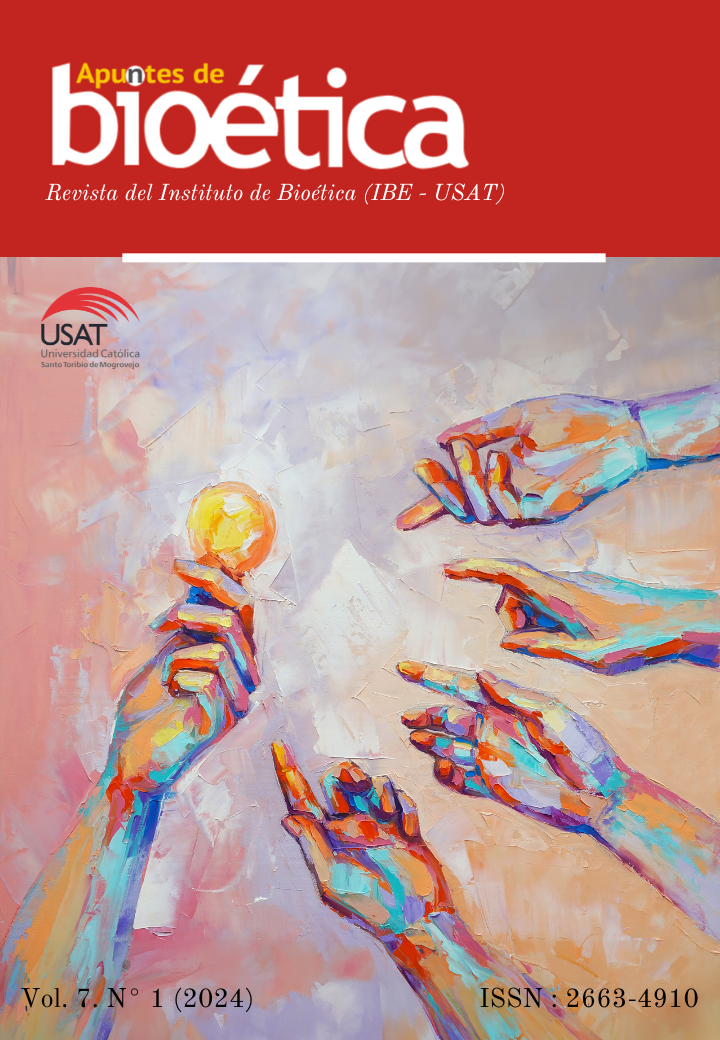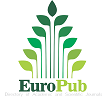Bioethical analysis of the transhumanist current and the eugenic initiative for an axiological reflection
Abstract
The first part of this article presents the modern approach to transhumanism and its respective bioethical analysis, aiming to present this analysis under a scheme of reasonableness rather than a search for accuracy after having expressed in a summarized but concise manner the premises of the intriguing eugenic movement and the positions of various authors in this regard, thus expanding the current description of the techno-scientific state of transhumanist ideas and their desperate emphasis on the improvement of disruptive and emerging biotechnologies.
In a second part of the text we will approach the concept of Eugenics and its development from what we know today as Directed Evolution (DE), analyzing axiologically the necessity, the consequences and the conflicts of this concept by virtue of its understanding of the human being, proposing a vision that transcends the conception of a uniquely biological organism, criticizing mechanistic, utilitarian and reductionist aspects that transhumanism confers to its understanding of the "human being".
Finally, in a third and last part, we will analyze the bioethical problems of the eugenic idea with the help of the essay "the ambush" by Ernest Jünger in order to seek an objective, axiological and metaphysical analysis to define the techno-scientific approach to the human being as an end and not as a means.
Downloads
References
Bostrom, N. (2005). A History of Transhumanist Thought. Journal of Evolution and Technology, 14(1), 1 - 30. https://goo.su/mYucwpk
Buchanan, A., Brock, D. W., Daniels, N. & Wikler, D. (2000). From Chance to Choice. Cambridge University Press.
Carvalko, J. (2013). The Techno-Human Shell: A Jump in the Evolutionary Gap. Sunbury Press, Inc.
Cortina, A. (2022). Los desafíos éticos del transhumanismo. Revista Pensamiento, 78(298), 471–483. https://doi.org/10.14422/pen.v78.i298.y2022.009
Gayozzo, P. A. (2021). Singularidad tecnológica y transhumanismo. Teknokultura. Revista de Cultura Digital y Movimientos Sociales, 18(2), 195-200. http://dx.doi.org/10.5209/TEKN.74056
Haros, L. C. (2023). El concepto de felicidad en el transhumanismo y en la bioética realista. Apuntes de Bioética, 6(2), 30 - 43. https://doi.org/10.35383/apuntes.v6i2.997
Harris, J. (2007). Enhancing evolution: The ethical case for making better people. Princeton University Press.
Infante-López, D. V., Céspedes-Galvis, M. F. & Wilches-Flores, Á. M. (2022). CRISPR-Cas9: el debate bioético más allá de la línea germinal. Persona y Bioética, 25(2), 1 - 18. https://doi.org/10.5294/pebi.2021.25.2.9
Jünger, E. (1993). La Emboscadura. Tusquets.
Lukacs, M. (2022). Neo Entes. Tecnología y cambio antropológico en el siglo 21. Grupo Unión.
Monterde, R. (2020). El transhumanismo de Julian Huxley: una nueva religión para la humanidad. Cuadernos de bioética, 31(101), 85. https://doi.org/10.30444/CB.53
More, M. (2010). The Overhuman in the Transhuman. Journal of Evolution and Technology, 21(1), 1-4. https://goo.su/RGthPA
Nakama, G. K. & Rojas, K. (2023). Naturaleza y persona humana: bases críticas de la pretensión transhumanista. Apuntes de Bioética, 6(2), 5 - 29. https://doi.org/10.35383/apuntes.v6i2.981
Pichardo, L. M. (2019). Reinventar la bioética en una sociedad posthumanista y de posverdad. El presente y futuro de la bioética. Persona y Bioética, 22(2), 212–222. https://doi.org/10.5294/pebi.2018.22.2.2
Postigo, E. (2021). Transhumanismo, mejoramiento humano y desafíos bioéticos de las tecnologías emergentes para el siglo XXI. Cuadernos de Bioética. 32(105), 133-139. https://doi.org/10.30444/CB.92
Rojas, N. (2022). Humanismo, una de las ideas más peligrosas del mundo. Sílex, 12(1), 96–125. https://doi.org/10.53870/silex.2022121197
Spaemann, R. (2005). Ética: Cuestiones fundamentales. Ediciones Universidad de Navarra.
Stein, E. (2007). La estructura de la persona. (J. Mardomingo, Trans.). BAC. Editorial. (Trabajo original publicado en 1936)
Vaccari, A. (2013). La idea más peligrosa del mundo: Hacia una crítica de la antropología transhumanista. Tecnología & sociedad, 1(2), 39 - 59. https://goo.su/CjdI95x
Velásquez-Vasconez, P. A. (2022). Reflexiones sobre la herramienta molecular que podría cambiar el curso de la historia humana: la edición genómica. Persona y Bioética, 26(1), 1 - 13. https://doi.org/10.5294/pebi.2022.26.1.3
Copyright (c) 2024 Joan Contreras Calderón (Autor/a)

This work is licensed under a Creative Commons Attribution 4.0 International License.
The authors retain copyright.
This work is under international license Creative Commons Attribution 4.0.
The articles published by the scientific journal "Notes on Bioethics" of the Universidad Catolica Santo Toribio de Mogrovejo, Chiclayo Peru, can be shared through the international public license Creative Commons Attribution CC BY 4.0
























 LIBRARY USAT
LIBRARY USAT